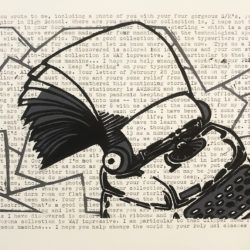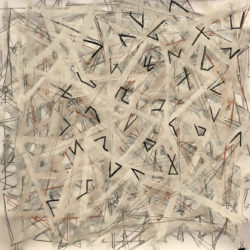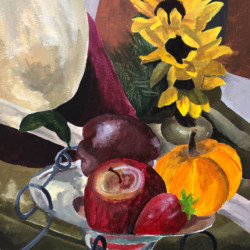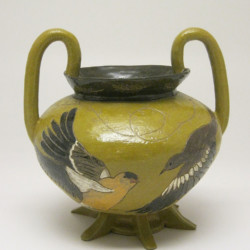Argumentative
Remembering American Slavery: Learning From Germany’s Eradication of Antisemitism
By Quinn Deahl ’23
America is unlike Germany in its response to atrocity given that Germany has made significant efforts to acknowledge its responsibilities for the Holocaust and build a culture of remembrance, subsequently becoming a welcoming and inclusive place for the Jewish people that were once victimized while America has largely repressed its human rights violations against African Americans.
See MoreCollege Girl Commentary: Teaching African American Literature and History
By Rachel Daniels
Attending high school in my small town was a privilege. Our teachers challenged us and repeatedly told us they were “preparing us for college.” At the time, the late nights and piles of homework were not something I appreciated—at all. However, after attending two different universities in my first year of college, I realized how blessed I was to grow up in a school district where students are cared for, challenged, and prepared for the academic journey that lies ahead, should they choose to pursue a degree beyond a high school diploma.
See MoreA Rooted Education
By Alora Nowlin '21
One of the most valuable skills we can learn today is how to live sustainably. This is easier said than done. There is not a class that can teach you how to live sustainably in the course of a single semester, since the resources that are available to us are ever-changing.
See MoreRecycling Crisis
By Lauren Goeke '19
I vividly remember my trip to Alberta, Canada in the summer of 2018. The wheels touched down on the landing strip. I found myself in a foreign land where the landscape, people, and priorities were completely different from my home in St. Louis, Missouri—and different from the college I attend in Pella, Iowa.
See MoreEl Efecto de la Casa en la Salud en Comunidades Mayas
By Kayleigh Rohr '20
This paper deals with the impact of home and housing on health in Mayan communities, particularly in Yucatán. Kayleigh’s expansive investigation draws from areas such as human rights, environmental studies and the biological sciences in order to illustrate the interdependency of housing and access to culturally-appropriate health care.
See MoreThe Bohemian Problem: A Sociological and Literary Examination of Willa Cather’s Fraught Relationship with Czech Culture
By K.E. Daft '19
Willa Cather has been hailed, for decades, as an advocate for Bohemian culture.
See MoreTeaching Elementary Mathematics to Students with Disabilities: Strategies for Instruction
By Marina Paul '21
When asked to think about learning challenges in elementary school, it would be safe to assume that many people would reflect on the difficulties of mathematics.
See MoreMachiavelli’s Politics and A Game of Thrones: The Board Game
By Matthew Wells '18
A Game of Thrones: The Board Game (GOT) is a laudable effort to put in players’ hands the chance to exercise their inner Machiavellian in a (hopefully) nonviolent fashion.
See MoreRestoration Through Brave Narration
By Peyton Gray '18
In the popular Middle Eastern piece of literature entitled The Thousand and One Nights (The Nights), a frame-tale narrative is used to tell various stories that revolve around King Shahrayar and his relationship with women.
See More







